Off-Center: DCPA’s great programming adventure is over
Officials cite budget constraints for eliminating wing devoted to growing younger audiences
Feb. 20, 2010, was one of the hardest days in the storied history of the Denver Center for the Performing Arts. The region’s leading arts center would be ending one of its signature programs – the National Theatre Conservatory, a three-year master’s acting program that for 26 years was a point of national pride and company identity. Something that made it different from everyone else.
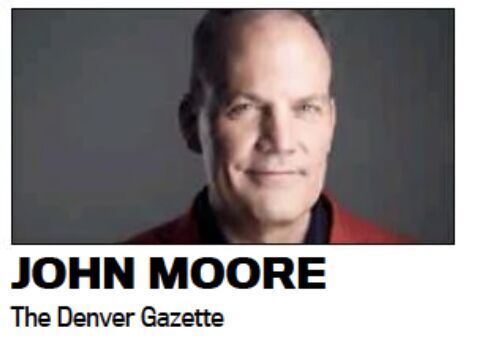
The news that day was somewhat tempered when the company soon announced the creation of Off-Center, billed at the time as “alternative fare that feels like a night out.” We’re talking social, interactive, multimedia events with fewer formalities – and free beer. Its stated mission was to build a community of younger audiences by presenting work that is interactive, interdisciplinary and inventive.
Traditional theater companies at the time were very much starting to fear the future. One where much of its core older audiences were dying off, and the overstimulated younger generation not waiting in the wings but rather locked somewhere in a nearby escape room.
The simultaneous death of the NTC and the birth of Off-Center felt a bit like “out with the old, in with the new.”
Tuesday was another of the hardest days in the storied history of the DCPA. President & CEO Janice Sinden made the shocking announcement that the company would “no longer be investing in the development and production of new immersive experiences.” She listed a constellation of factors that can be distilled to this: It costs too much to produce new immersive work.
Bottom line: Off-Center is gone. The end of a signature line of programming that for 15 years has been a point of national pride and company identity. Something that made it different from everyone else.
Again.
No matter how you spin it, this is bad for Denver Center, its audiences, its national reputation – and it’s really bad for the employment of local artists, who have greatly benefited from Off-Center’s existence.
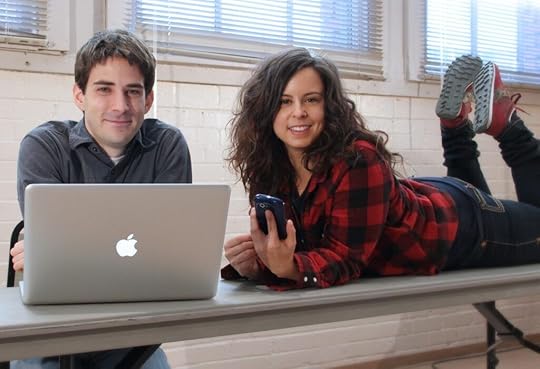 Co-Curators Charlie Miller and Emily Tarquin launched Off-Center for the DCPA in 2010. DENVER CENTER
Co-Curators Charlie Miller and Emily Tarquin launched Off-Center for the DCPA in 2010. DENVER CENTERHow it all began
Off-Center’s roots were completely charming. Curators Charlie Miller and launched with “Cult Following,” a monthly gathering for film buffs where clever improv comedy actors faked their way through classic movie scenes suggested by the audience.
From that, Miller grew Off-Center into a visionary model that has made the Denver Center one of the nation’s undisputed leaders in immersive theater – defined as experiences where the audience is integrated into the story’s world and become active participants rather than passive observers.
Some Off-Center experiences were as small as one actor and one audience member on a controlled blind hookup. (Or, as I call it, my last good date.) “Camp Christmas,” a weird winter wonderland of lights, decorations, and quirky holiday artifacts across centuries and cultures, was taken in by more than 250,000 over four years – and even expanded into Texas.
By the 2020-21 season, Off-Center had begun to dwarf its parent Denver Center Theatre Company, drawing a boggling 151,249 to its three interactive audience experiences: “Van Gogh Alive,” “Mixed Taste” and “Camp Christmas.” And that was before “Theater of the Mind,” co-created by Talking Heads mastermind David Byrne, which drew 42,000 to a warehouse in northeast Denver, just 16 at a time. Good enough for Chicago’s esteemed Goodman Theatre to add it to its 2025-26 season. The boost to the DCPA’s national profile was immeasurable. And it never happens without Miller and Off-Center.
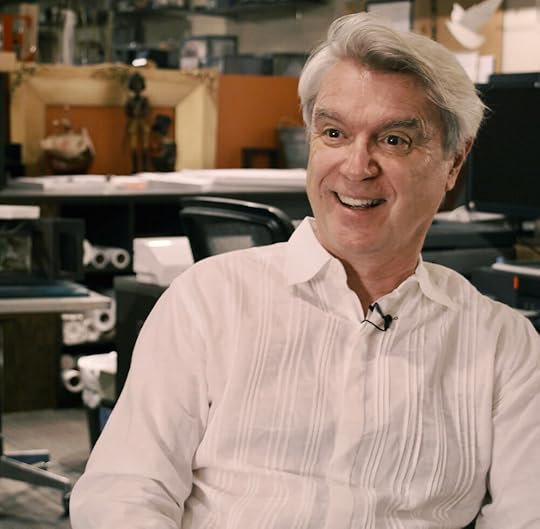 David Byrne talks with Senior Arts Journalist John Moore in preparation for the launch of ‘Theater of the Mind’ in early 2020. DAVID LENK
David Byrne talks with Senior Arts Journalist John Moore in preparation for the launch of ‘Theater of the Mind’ in early 2020. DAVID LENKOff-Center made plain that the American theater now has two very distinct programming lines: Theatre in a box, and theater on your feet. The DCPA proudly claims 653,000 audience members for Off-Center, and 70 unique live experiences that have generated more than $80 million in economic impact.
To me, the line in the sand soon became clear enough: If I attended a Denver Center Theatre Company play or musical, I often felt like the youngest person in the room. If I attended an Off-Center event, I felt like the oldest. This story was going only in one direction: If one form were going to outlive the other, the immersive wing was surely going to one day dwarf the traditional wing.
So what went wrong?
 Off-Center’s final home at Broadway Park. COURTESY DCPA
Off-Center’s final home at Broadway Park. COURTESY DCPAThe Denver Center has staked so much of its mission on Off-Center that it took out a long-term lease on DCPA Off-Center at Broadway Park, a 15,000-square-foot space at 407 S. Broadway that hosted Off-Center’s final two offerings: “Monopoly Lifesized,” based on the classic board game, and “Sweet & Lucky: Echo,” a sequel of sorts to its first real breakout success nine years before. “Echo” closed on Sunday, two months before it was expected to run. Two days later, the DCPA announced that Off-Center is history.
Miller has been considered a hometown prodigy since he was a 15-year-old freshman at Colorado Academy helping out backstage for the disability-affirmative Phamaly Theatre Company’s shows at the Denver Center – which hired him right out of Harvard under the newly created title of Multimedia Specialist in 2008.
“I was the token millennial on the artistic team,” he told me with a laugh in a long-ago interview. “The DCPA at the time was struggling with how to connect with a younger audience that was not interested in the same things from the live-theater experience that their parents and grandparents were.”
What’s amazing about Charlie Miller – and “therefore amazing about Off Center,” said frequent Off-Center guest artist Amanda Berg Wilson, “is that he was genuinely out there – not just in the country, but all over the whole English-speaking planet, trying to figure out what the next frontier of theater was.”
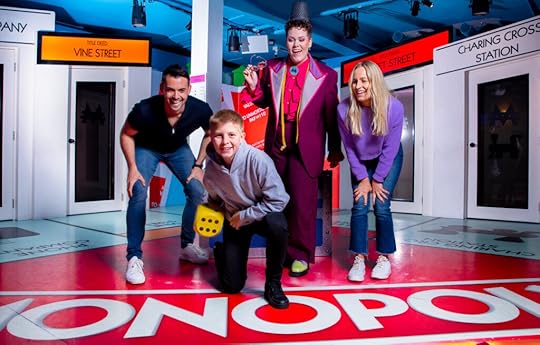 Press photo for Off-Center’s “Monopoly Lifesized,” based on the classic board game.
Press photo for Off-Center’s “Monopoly Lifesized,” based on the classic board game.Miller cultivated partnerships with other local immersive companies, with local playwrights and the disability community. Those who have watched him emerge as a pioneering leader in the immersive field have assumed that the day would inevitably come when he would be named the first homegrown Artistic Director of the Denver Center Theatre Company. And I remember thinking from the very beginning of that talk: He was born for even greater things than that.
We’ll soon find out what that might be, because Miller’s 17 years on staff will close at the end of March, Sinden said.
This all comes at an unsettling time for the Denver Center, which quietly laid off 12 staff members in July without further public explanation, a move that clearly signals enough economic distress that Off-Center could not survive two consecutive financial losses.
It might seem presumable from Tuesday’s news that the Denver Center has decided to no longer cater to that elusive younger demo anymore, which would be an enormous mistake. But Sinden said that’s not true.
“While this chapter is closing,” she wrote in a statement, “our commitment to bold, transformative theater remains stronger than ever.”
In that same note, she addressed Miller directly, saying: “Your vision expanded our imagination and redefined what theatre could be.” ( left the Denver Center in 2016 and was last month named Managing Director of the Actors Theatre of Louisville.)
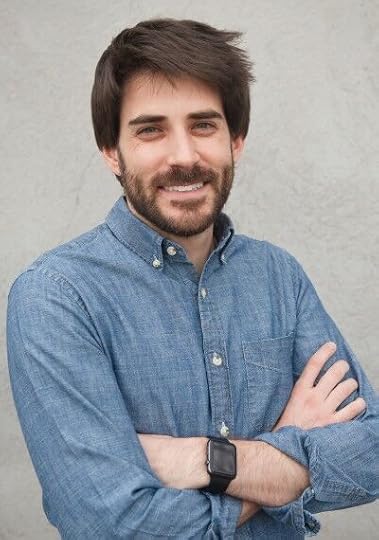 Charlie Miller. COURTESY DENVER CENTER
Charlie Miller. COURTESY DENVER CENTERThis news has left some in the Off-Center community feeling like there’s been a death in the family. For the local actors and crew, the opportunity to work an Off-Center show meant rare, well-paying, long-term contracts that cannot be replaced elsewhere.
Berg Wilson, founder of a like-minded immersive theater company called The Catamounts, performed in the original “Sweet & Lucky,” and directed “The Wild Party” and others. She was an assistant director on “Theater of the Mind,” and will be again in Chicago. She’s left feeling both melancholy and proud, because she said Off-Center succeeded at the one thing that mattered most: Its stated mission.
“I can say with certainty that the audience that I saw show up at ‘Sweet & Lucky’ and ‘Theater of the Mind’ is not the Denver Center Theatre Company’s typical audience,” Berg Wilson said. “I just think it was bringing in people who are not going to see traditional theater. And that’s what it was for.
“I’m just heartbroken about all of it, because it totally changed my life as an artist.”
John Moore is the Denver Gazette’s Senior Arts Journalist. He held the same title with the Denver Center for the Performing Arts from 2013-20.



